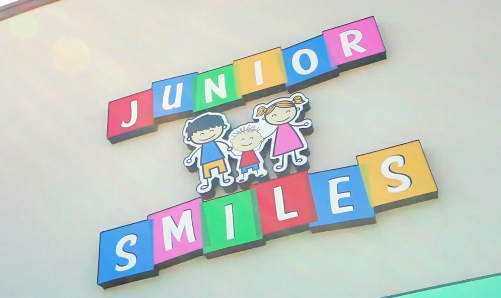As your child grows, tracking the development of their oral health is crucial to ensuring a bright, healthy smile. From the eruption of the first baby tooth to the day the tooth fairy first visits, each milestone in a child’s oral health journey plays a pivotal role in their overall well-being.
In this post, we’ll explore key milestones to watch for in your child’s dental development, providing you with practical tips to keep those tiny teeth shining bright.
Table of Contents
What is the Importance of Tracking Oral Health Milestones?
Tracking oral health milestones is crucial for early detection of potential dental issues. Regular monitoring allows parents and dentists to ensure that a child’s teeth and gums are developing healthily. This proactive approach can help in instigating timely interventions if any abnormalities are noticed.
What are Oral Health Milestones for Children?
As children grow, their oral health needs change. It’s essential to recognize and understand these milestones to ensure they maintain a healthy smile as they develop. Here are the key oral health milestones for children, each critical to their dental development.
First Tooth Emergence
The emergence of the first tooth is a significant milestone, typically occurring around six months of age. This event marks the beginning of a new oral care routine that parents should adopt, focusing on gently cleaning the baby’s new tooth with a soft-bristled brush. Monitoring and cleaning these first teeth are crucial to prevent early dental issues.
Completion of Primary Dentition
By the age of three, most children will have a full set of primary teeth, totaling twenty. This complete set of primary teeth aids in proper chewing, speaking, and holds space for future permanent teeth. Regular dental check-ups should be established by this point to monitor the development and catch any potential problems early.
First Dental Visit
The first dental visit is a crucial milestone and should happen by the time a child turns one or within six months after their first tooth emerges. This visit is not just about checking the child’s dental health; it’s about setting the stage for lifelong oral care. It’s a great opportunity to visit a trusted place like Junior Smiles of Stafford, a pediatric dentist in Falls Church, who can guide parents through teething and early dental care routines.
Loss of First Baby Tooth
Children typically begin to lose their primary teeth around age six, starting with the front teeth. The loss of these teeth makes way for permanent teeth and is a natural part of dental development. It’s important for parents to encourage good oral hygiene during this phase to support healthy new teeth.
Eruption of Permanent Teeth
The eruption of permanent teeth usually starts around age six and can continue into early adolescence. As these stronger, larger teeth replace the primary ones, maintaining good oral hygiene becomes even more crucial. Regular dental visits during this period ensure that the permanent teeth are coming in correctly and healthily.
How To Approach Your Child’s First Teeth
As your child reaches the exciting milestone of their first teeth, proper care becomes crucial to ensure a healthy dental future. Here’s how you can effectively maintain your little one’s oral health from the start.
Establish a Cleaning Routine Early
Begin cleaning your child’s mouth before the first teeth even appear by wiping the gums with a soft, damp cloth. This helps remove harmful bacteria and prepares them for the sensation of teeth cleaning. Once the first tooth emerges, switch to a baby toothbrush with a small smear of fluoride toothpaste.
Be Mindful of Feeding Habits
Avoid putting your baby to bed with a bottle of milk or juice as this can lead to tooth decay due to prolonged exposure to sugars. Encourage drinking from a cup as they approach their first birthday. It’s also important to limit sugary snacks and drinks between meals to protect their emerging teeth.
Schedule the First Dental Visit
It’s recommended to schedule your child’s first dental visit by their first birthday or when the first tooth is visible, whichever comes first. This visit is more about getting your child used to the dentist’s office than actual treatment. Early visits can help spot any potential issues and set a foundation for good dental habits.
What is The Importance of Early Dental Visits?
Introducing children to regular dental visits from a young age sets the foundation for a lifetime of healthy oral habits. It not only helps in spotting dental issues before they become severe, but also reduces dental anxiety in children. Here’s why starting early can make all the difference:
Establishing Comfort and Trust
Early dental visits help children become familiar with the dental office environment, reducing fear and anxiety. By meeting the dentist in a non-threatening scenario, children learn to associate dental care with a positive experience. This comfort can lead to more cooperative behavior during future visits.
Preventative Care and Education
During early visits, dentists can teach both parents and children about proper oral hygiene practices. This education includes demonstrating effective brushing and flossing techniques tailored to young children. Moreover, dentists can spot and address potential issues like cavities or bite problems early on.
Tracking Developmental Milestones
Regular check-ups allow dentists to monitor the growth and development of a child’s teeth and jaws. This oversight ensures that any developmental abnormalities are caught and managed early. It also provides an ongoing record of oral health that can be useful for future reference.
Your Child’s Oral Health: In Conclusion
Tracking your child’s oral health milestones and providing the necessary care and guidance at each stage is essential for promoting good oral health from an early age. By understanding the typical timeline for primary teeth eruption, introducing oral hygiene habits, addressing common oral health issues, emphasizing the role of diet and nutrition, and scheduling early dental visits, parents can set their children on the path to a lifetime of healthy smiles.
Image from Pexels


